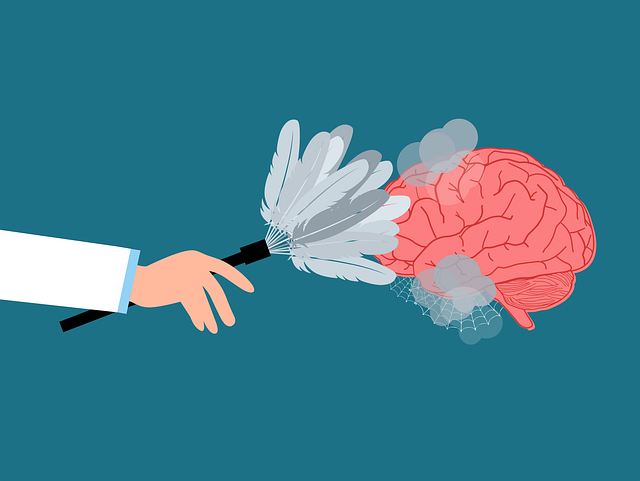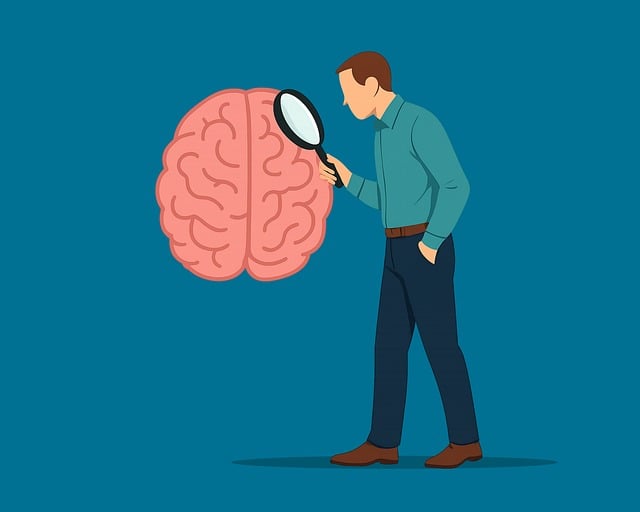Denver Developmental Disability Therapy offers comprehensive solutions for managing anxiety among individuals with developmental disabilities. Through CBT, self-awareness exercises, mindfulness techniques, and lifestyle changes, clients gain tools to identify triggers, change negative thought patterns, reduce symptoms like increased heart rate and restlessness, and enhance overall mental wellness. Support groups and community resources further empower individuals to lead more satisfying lives by fostering connection, providing practical strategies, and promoting healthy habits.
Anxiety management is a vital skill, especially with common triggers like stress, worry, and fear impacting daily life. For individuals in Denver seeking support, various techniques offer effective relief. This guide explores comprehensive strategies, including Cognitive Behavioral Therapy (CBT), mindfulness practices, lifestyle adjustments, and support groups. By understanding anxiety’s symptoms and employing these tools, one can effectively navigate and manage their mental health journey, especially when tailored to the unique needs of Denver Developmental Disability Therapy.
- Understanding Anxiety: Common Triggers and Symptoms
- Cognitive Behavioral Therapy (CBT): A Powerful Tool for Denver Developmental Disability Therapy
- Mindfulness and Relaxation Techniques for Managing Anxiety
- Lifestyle Changes to Reduce Anxiety Levels
- Support Groups and Community Resources for Anxiety Relief
Understanding Anxiety: Common Triggers and Symptoms

Anxiety is a complex emotional response that can significantly impact daily life. It’s crucial to understand that everyone experiences anxiety at some point, but for individuals with developmental disabilities, managing it effectively is essential for their overall well-being. Common triggers for anxiety can range from social situations and public speaking to specific fears or even certain environments. Recognizing these triggers is the first step in Denver Developmental Disability Therapy. Symptoms may include increased heart rate, difficulty concentrating, restlessness, and physical tension—all of which can be exacerbated by underlying mental illness stigma.
Through Denver Developmental Disability Therapy, individuals learn to identify their personal anxiety triggers using self-awareness exercises. This heightened awareness enables them to employ conflict resolution techniques tailored to their unique needs. By understanding and managing anxiety, individuals can reduce the impact of symptoms and lead more fulfilling lives. Mental illness stigma reduction efforts also play a vital role in fostering acceptance and encouraging open conversations about anxiety, creating a supportive environment for everyone affected.
Cognitive Behavioral Therapy (CBT): A Powerful Tool for Denver Developmental Disability Therapy

Cognitive Behavioral Therapy (CBT) stands as a powerful tool within the realm of Denver Developmental Disability Therapy. This evidence-based approach focuses on identifying and changing negative thought patterns and behaviors, offering individuals a path towards improved mental wellness. By addressing underlying cognitive distortions, CBT empowers folks to manage anxiety effectively and foster personal growth.
Incorporating techniques like self-care routine development for better mental health, empathy building strategies, and mental wellness coaching programs, CBT becomes an inclusive strategy. It aids in navigating the challenges associated with developmental disabilities, promoting resilience and enhancing overall life quality. This tailored approach ensures that each individual receives personalized support, leading to a transformative journey of self-discovery and anxiety management.
Mindfulness and Relaxation Techniques for Managing Anxiety

Mindfulness and relaxation techniques have emerged as powerful tools in managing anxiety, especially for individuals with developmental disabilities or those seeking comprehensive support from Denver Developmental Disability Therapy services. These practices encourage a focus on the present moment, helping to calm the mind and reduce the intensity of anxious thoughts.
One effective approach is mindfulness meditation, which involves paying attention to one’s breath, bodily sensations, and surroundings without judgment. This simple yet profound practice can help individuals detach from stressful situations, fostering a sense of tranquility. Additionally, progressive muscle relaxation techniques teach individuals to identify and release tension in various parts of the body, effectively lowering anxiety levels. By incorporating these mindfulness and relaxation strategies into their daily routines, healthcare providers can also prevent burnout, as recommended by Burnout Prevention Strategies for Healthcare Providers. Mental Wellness Journaling Exercises can further enhance these practices, allowing individuals to track progress and gain insights into their anxiety triggers. Empathy-building strategies, an essential aspect of Denver Developmental Disability Therapy, complement these techniques by fostering understanding and connection, contributing to overall mental wellness.
Lifestyle Changes to Reduce Anxiety Levels

In the pursuit of managing anxiety, lifestyle changes play a pivotal role. Individuals seeking relief from persistent worry and stress in Denver can turn to various strategies that promote overall well-being. Engaging in regular physical activity, adopting a balanced diet, and prioritizing quality sleep are foundational components. These simple yet powerful habits not only reduce symptoms of anxiety but also enhance one’s ability to cope with challenging situations, fostering inner strength development.
Furthermore, mindfulness practices and positive thinking techniques can significantly contribute to burnout prevention strategies for healthcare providers who often face high-stress environments. By integrating moments of calm through meditation or deep breathing exercises, individuals can cultivate a sense of tranquility. Encouraging positive thinking reframing negative thoughts into constructive ones empowers individuals to navigate life’s uncertainties with resilience. These holistic approaches, tailored to one’s unique needs, complement traditional therapy, especially for those with developmental disabilities, offering comprehensive anxiety management solutions in the Denver area.
Support Groups and Community Resources for Anxiety Relief

Support groups and community resources play a vital role in anxiety management, especially for individuals with developmental disabilities. In Denver, there are numerous organizations dedicated to providing a safe and supportive environment for those dealing with anxiety. These groups offer a unique opportunity to connect with others facing similar challenges, fostering a sense of belonging and understanding. Sharing experiences and strategies within these circles can empower individuals to manage their anxiety effectively.
Community resources such as stress management workshops organized by local therapy centers or mental health clinics are valuable tools. These workshops often include guidance on self-care routine development for better mental health, promoting healthy habits that alleviate anxiety symptoms. Additionally, keeping a mental wellness journal through exercises provided by these resources can help individuals track their progress and identify triggers, ultimately contributing to improved overall mental wellness.
Anxiety management is a multifaceted approach, and by combining techniques like CBT with mindfulness, lifestyle adjustments, and community support, individuals in Denver can effectively navigate their anxiety. Integrating these strategies into daily routines offers valuable tools for managing symptoms, improving overall well-being, and enhancing the quality of life, especially when tailored to those with developmental disabilities. With the right resources, anyone can learn to control their anxiety and live a fulfilling life.














